How to boost your AI search visibility: 5 key factors by Ignite Visibility
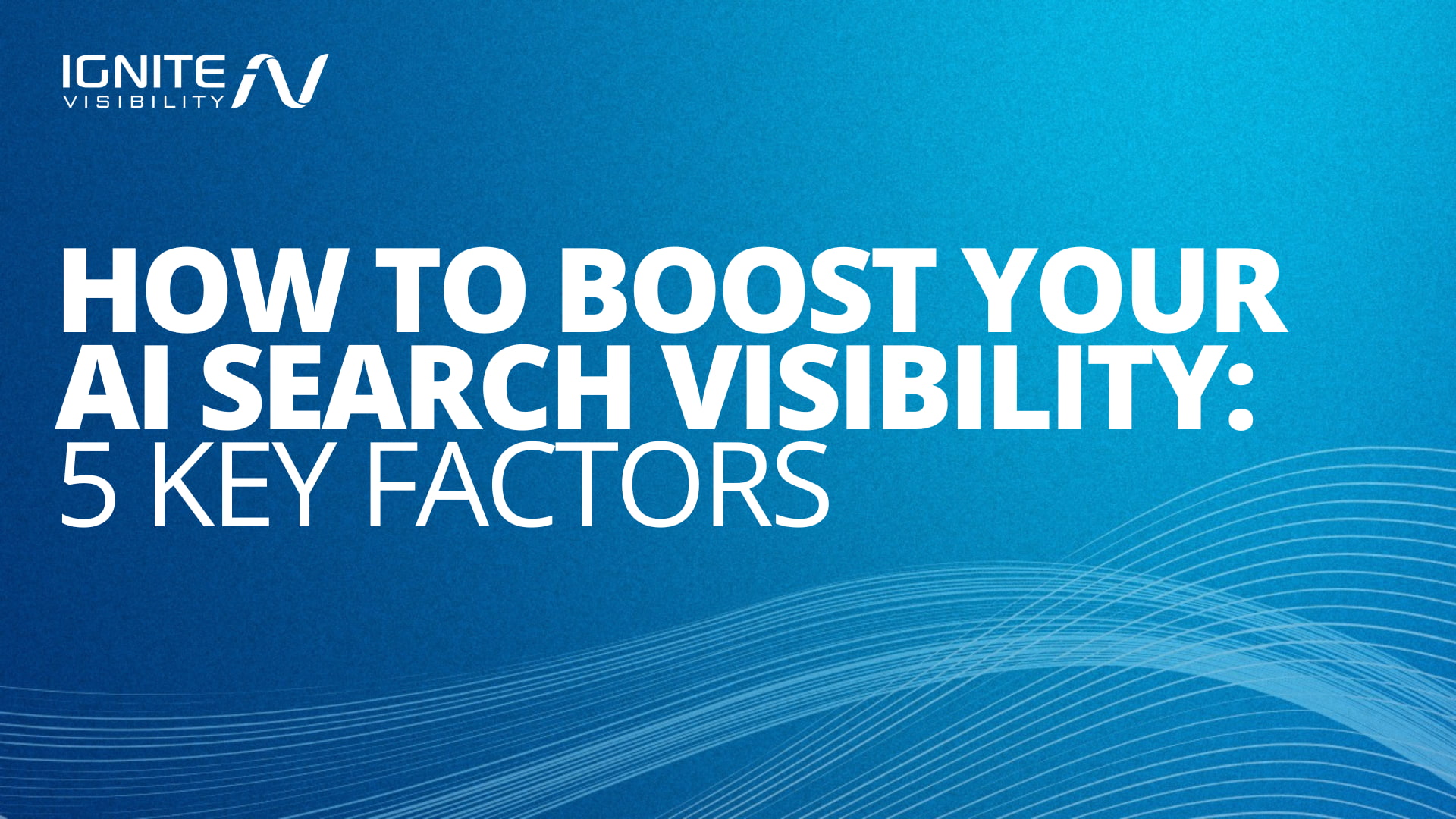

As AI transforms how users search for information online, we all face a new challenge: ensuring our content is visible and impactful within emerging AI platforms.
While traditional SEO tactics remain crucial, brands must also embrace AI SEO to truly excel. By optimizing content for AI systems, brands can ensure they stand out in AI-generated responses and large language models (LLMs) like Google’s Gemini, Microsoft Copilot, and ChatGPT.
Ninety percent of businesses are concerned about losing SEO visibility as AI reshapes search, according to a recent survey. The same report also found that 61.2% of businesses plan to increase their SEO budgets due to the growing influence of AI. However, many are unsure which strategies to prioritize.
To navigate this evolving landscape, it’s essential to focus on five key factors that can significantly enhance your AI search visibility. These five factors are well-established industry “pillars” of technical AI SEO and will be crucial for optimizing your content and standing out in the AI-driven search ecosystem.
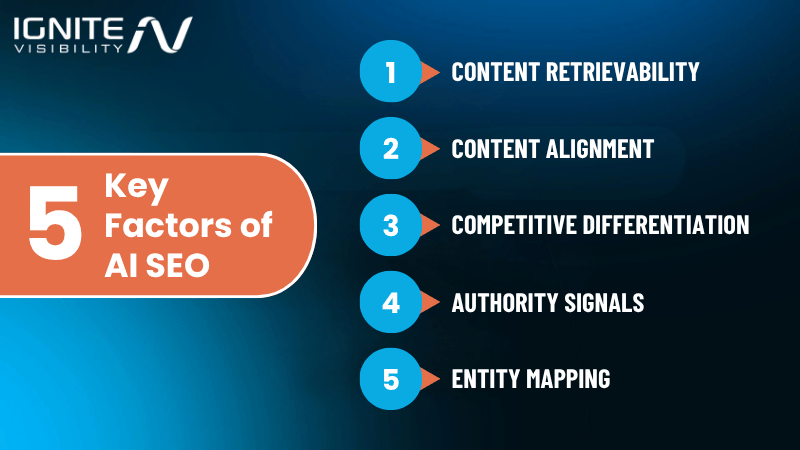
1. Content retrievability: Ensure AI can find your content
Content retrievability refers to how easily AI systems can find, extract, and attribute information from your content. In simple terms, it measures how discoverable your content is by AI crawlers and indexing systems.
If AI systems can’t access or accurately extract your content, it will never show up in generative answers. Without visibility in these AI-powered search results, your brand may miss a significant opportunity for engagement and increased visibility.
Content that is easily retrievable ensures AI systems can pull relevant data, making your content more quotable and impactful in response generation.
To improve content retrievability:
- Use semantic chunking to group related ideas together.
- Structure your pages with clear headings, concise bullet points, and organized sections.
- Optimize multimodal content, such as images and videos, to enhance discoverability by AI systems.
Pages with implemented schema markup have 40% higher click-through rate than those without, according to a study by Schema App.
Additionally, multimodal optimization is becoming increasingly crucial as AI systems evolve to understand and process a variety of content formats.
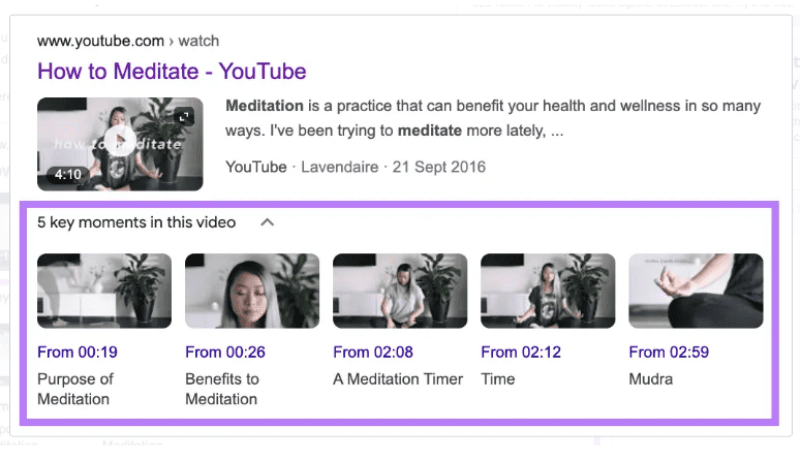
2. Content alignment: Speak the language of AI
Content alignment focuses on how well your content matches the way people ask questions in AI-powered search environments. AI systems favor content that provides clear, direct answers to users’ questions, especially those that align with conversational queries.
If your content doesn’t align with how people naturally phrase their queries, in a conversational manner, it may not be included in generative search results. Structuring your content to reflect common user queries increases the likelihood that AI will use your content in response generation.
To improve content alignment:
- Include direct answers or summaries at the beginning of your pages to provide AI with a quick, quotable response.
- Use a conversational tone and mirror the natural language of your target audience.
- Maintain consistent terminology and definitions to reduce ambiguity and improve AI comprehension.
Informational content is most likely to trigger AI Overviews, according to a recent study by Semrush: 88.1% of queries that trigger an AI Overview are informational.
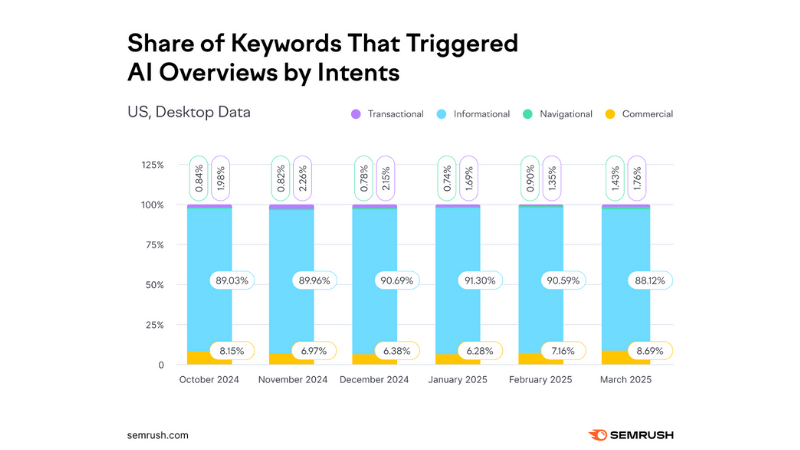
3. Competitive differentiation: Stand out from the crowd
Competitive differentiation measures the uniqueness and value of your content compared to that of your competitors. In the AI search ecosystem, your content must offer something distinct, whether it’s new data, unique insights, or a fresh perspective on a topic.
AI systems aim to provide the most relevant and valuable information to users.
If your content echoes what competitors are already saying, AI has no reason to highlight your brand over theirs. To stand out, your content must offer a unique value proposition that fills gaps competitors may have missed.
To improve competitive differentiation:
- Focus on presenting unique data or case studies that others don’t cover.
- Provide fresh perspectives, industry insights, or expert opinions that make your content stand out.
- Create content that answers niche questions that your competitors have overlooked.
In a recent AI SEO report, the Content Marketing Institute found that 22% of B2B marketers characterize the success of their content marketing as extremely or very successful. These top performers most often attribute their success to understanding their audience.
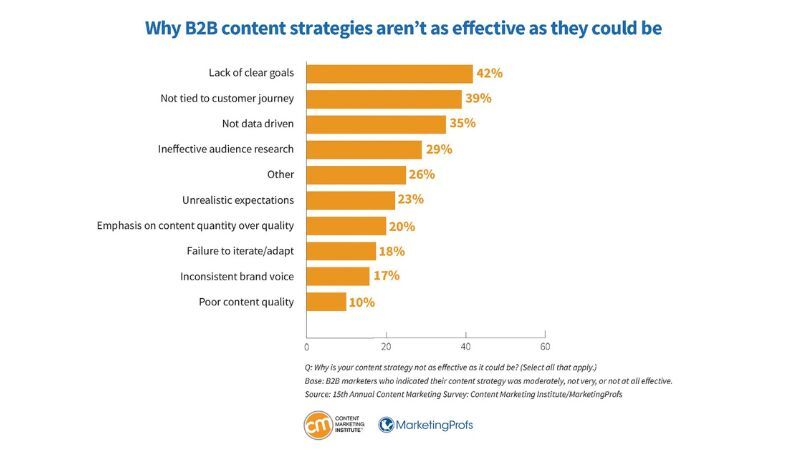
4. Authority signals: Build trust with AI systems
Authority signals are markers that demonstrate the credibility and trustworthiness of your content.
AI systems want to trust that content is from reliable, authoritative sources. These signals typically include source citations, verifiable credentials, and consistent, quality content from trusted authorities.
Without authority signals, even highly insightful content may be overlooked in favor of competitors that have more established trust with AI systems. By building authority signals, you position your brand as the go-to source that AI systems can trust and confidently cite in generative results.
Examples:
- Include consistent, authoritative source citations (e.g., from reputable publications, academic studies, or industry experts).
- Showcase your company’s credentials, certifications, and other markers of authority.
- Gain backlinks and media mentions to enhance your brand’s overall credibility.
The top results in Google had at least three times more backlinks than positions 2-10, according to a recent study from Backlinko. This highlights the importance Google places on authority in the top position in search engine results.

5. Entity mapping: Connect the dots for AI
Entity mapping refers to how effectively your content enables AI systems to understand the relationships between key entities – such as people, products, organizations, or concepts – within your content. AI systems build knowledge graphs to map these entities, and content that clearly identifies and links them helps AI understand the larger context of your information.
Unlike traditional search engines, AI systems rely on knowledge graphs to build context and meaning. If your content doesn’t clearly identify entities or their relationships, it risks being overlooked.
Strong entity mapping ensures your content fits seamlessly into AI’s understanding of the world, making it more likely to be surfaced in AI-driven answers.
To increase entity mapping:
- Explicitly name and link key entities (e.g., people, products, organizations) within your content.
- Use consistent terminology to describe entities across all your content.
- Build a semantically related internal linking strategy to strengthen connections between related entities.
In a controlled experiment comparing two identical websites for a fictional company, one implemented comprehensive schema markup and the other did not. ChatGPT demonstrated that the site with schema markup outperformed its counterpart by 30% in AI-driven retrieval and citation quality.
AI visibility goes beyond traditional SEO
In the era of AI-driven search, your brand’s visibility and influence in AI-generated results are crucial. By optimizing for five key factors – content retrievability, content alignment, competitive differentiation, authority signals, and entity mapping – you can ensure your brand remains discoverable and stands out.
As AI continues to accelerate in search, partnering with the right SEO agency will be crucial for staying visible in 2026 and beyond.
An agency with a strong foundation in traditional SEO, coupled with proven strategies and a framework for AI SEO, will ensure your brand not only adapts to the changing landscape but leads the charge.
With AI transforming the way users find information, working with experts who understand both traditional SEO and AI SEO will be key to sustaining your competitive edge and securing long-term visibility.


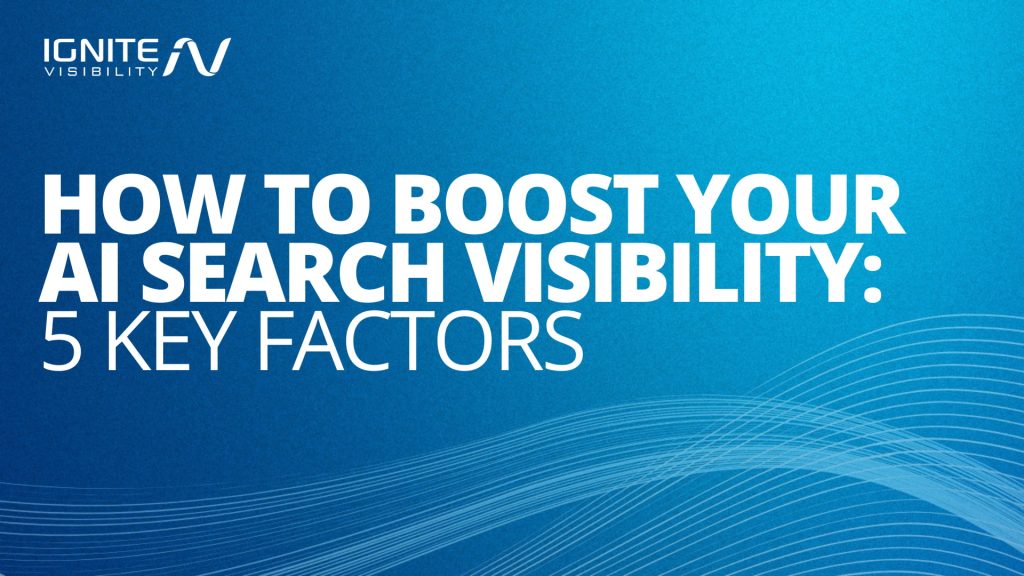




Recent Comments